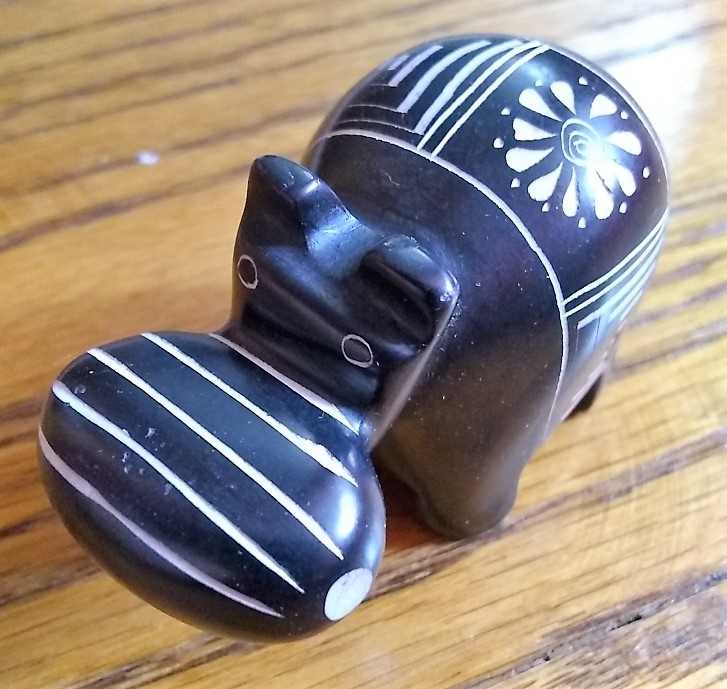10 Reasons Why People Should Shop Fair Trade
 Over three years ago, Cathy Marks was hired for the managing position at the fair trade store, Ten Thousand Villages, in Ann Arbor, Michigan. When the previous company she worked for, a franchising company, was sold, Marks was temporarily unemployed. During this time, she decided to look for a career in “something more meaningful.”
Over three years ago, Cathy Marks was hired for the managing position at the fair trade store, Ten Thousand Villages, in Ann Arbor, Michigan. When the previous company she worked for, a franchising company, was sold, Marks was temporarily unemployed. During this time, she decided to look for a career in “something more meaningful.”
Having shopped at Ten Thousand Villages in the past, Marks said she was “intrigued as a customer” from the positive impact Ten Thousand Villages makes in preventing global poverty. It didn’t take long before she applied for the position. Since then, Marks is enjoying her job in the fair trade industry. She says her favorite part is telling stories about the artists to customers because the stories allow customers to make connections between specific artisans and their culture with their products.
Marks believes fair trade is necessary because it helps people in developing countries have higher standards for their communities, their homes and their educational systems. Here are 10 reasons why people should shop fair trade.
10 Reasons Why People Should Shop Fair Trade
- Fights Global Poverty and Hunger – Fair trade guarantees workers are paid at least a “minimum floor price,” or the amount it costs for them to produce their product. This standard ensures workers are not living in poverty, resulting in them being able to live comfortably with an income that fulfills their basic household needs such as food and clothing. On top of that, it also ensures workers have a surplus sum of money which they are able to save for future needs.
- Empowers Workers – Because fair trade ensures workers are living above the poverty line, workers are able to spend less time worrying about where their next meal is coming from, and more time planning for their future. Instead of depending on others for help, they have control over their own lives. They have the ability, time and resources to make choices for the good of themselves and their community.
- Positively Impacts Communities – On top of their wages, workers in the fair trade industry are also given premiums. Premiums are funds that workers can put toward whatever they feel will best benefit their community. For instance, workers can use premiums to better their community’s educational system, healthcare system, environment, recreational facilities or water access. This ensures better conditions and futures for workers’ communities.
- Ensures Safe Working Conditions – Fair trade protects workers’ basic human rights. It ensures they work reasonable hours and work in an environment that is free of harmful chemicals and substances. Marginalized and vulnerable populations are equally protected under fair trade standards. Workers are paid a wage that allows them better health and better nutrition.
- Prohibits Child Labor – Fair trade standards ensure no forms of child labor and child slavery are used on farms. Children under the age of 18 are then able to attend school and lead healthier lives. The fair wage gives workers the resources they need to ensure their children receive proper nutrition.
- Protects Women’s and Minorities’ Rights – Fair trade ensures that women and minority workers are not discriminated against. No matter the workers’ age, race, religion, gender or ethnicity, all are treated equally. All are guaranteed fair wages and ethical working conditions.
- Promotes Environment Sustainability – Fair trade products are created using limited amounts of pesticides and fertilizers. They are not genetically engineered and utilize the most efficient amount of waste, water and energy as possible. In addition, many fair trade products are made from recycled materials. This helps preserve our planet’s natural resources.
- Keeps Indigenous Cultures Alive – When people shop fair trade, they get to experience multiple cultures from across the globe without having to go overseas. Each product, whether it be clothing, coffee beans, baskets or jewelry, comes from an artisan who spent their time and talent crafting the product. Through fair trade, artisans are able to keep their culture alive, share it with others and pass it down to the younger generations.
- Supports Ethicality – When shopping fair trade, people make a statement about how they think employees in developing countries should be treated– with fairness and equality. They are saying they believe all farmers and artisans should be paid at least minimum wage for the products they produce and that all farmers and artisans deserve to live a comfortable, healthy life. Buying fair trade raises awareness of the issue of unethical labor tactics.
- Meaningful Impact – Every time someone consumes a fair trade product, they are fulfilled, since they know their purchase is helping someone across the globe live a life free from poverty.
Like Marks encourages her customers, these 10 reasons show why people should shop fair trade. By shopping fair trade, workers’ rights are protected. They are treated equally and paid fairly. They are able to attend school and live in a comfortable, healthy environment. Their cultures are kept alive. When someone shops fair trade, they are helping keep the industry alive. Through a simple Google search, people can find a fair trade store near them to shop at and join the fight.
– Emily Turner
Photo: Fair Trade Product by Emily Turner
